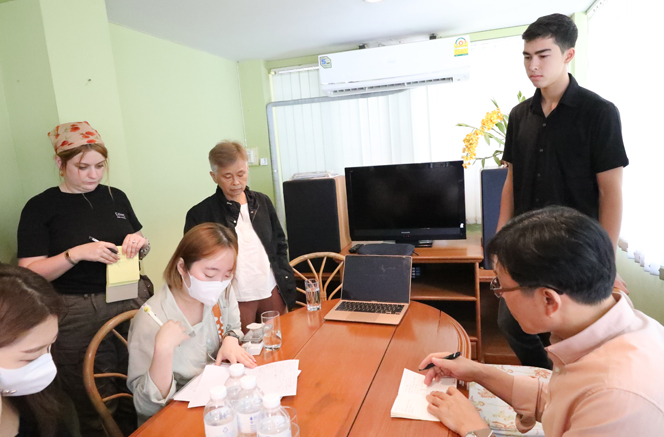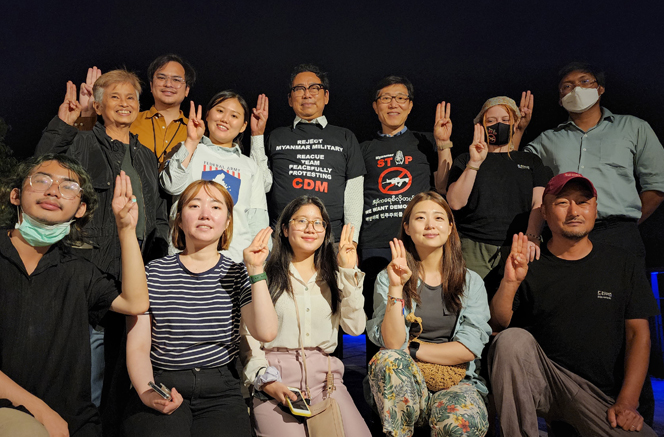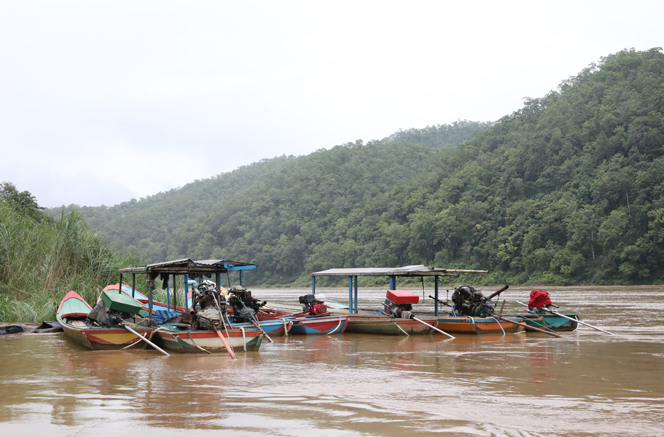The Myanmar Gwangju Solidarity Visits Thailand-Myanmar Border Areas
- Visits to camps for displaced people and ethnic minorities in border areas, and donation of medicines
- Meetings with NUG’s Minister of Human Rights and Minister of Women and Children, and Cynthia Maung, a winner of Gwangju Prize for Human Rights
- Requests for the international community to participate in the Four Cuts & Three Supports Campaign
- Gwangju citizens Giving Support to Burmese
The Myanmar & Gwangju Solidarity arranged a visit to the border areas between Thailand and Myanmar for seven days from August 11 to 18, where they donated medicines and met with the Ministers of the National Unity Government (NUG), organizations and activists for the democratization movement, and journalists to discuss the current situation there and ways to collaborate.
Hosted by the Myanmar Gwangju Solidarity Opposes Military Coup and Supports Democratization in Myanmar (hereinafter referred to as the “Myanmar Gwangju Solidarity”), a team of people from the May 18 Memorial Foundation, Jeonnam Daily Newspaper, and Dreamers headed to the border areas between Thailand and Myanmar, to assess the current situation and look for what Korea’s civil society can do to help Myanmar’s democratization going forward. Chonnam National University Hospital contributed medicines and civic groups in Myanmar supported the itinerary of the visitors.
The team started their itinerary by making the first stop at MaeTao Clinic in Maesot, which is run by Cynthia Maung who won the 2022 Gwangju Prize for Human Rights, and visited other cities and organizations along the borderline to check the situation and meet human rights and democratization movement groups in Myanmar. Most of these border activists have fled from military oppression in Myanmar and settled down in Thailand.

In Myanmar, reckless airstrikes by the military regime and mines buried all over are claiming increasing civilian casualties but people are denied the sort of medical treatment they desperately need. Basic relief aides and medicines are much needed but getting them through the border to Myanmar is a serious challenge, which requires support from the international community.
Ms. Susanna, the Minister of Women and Children of the NUG said many women are falling victim to the sexual crimes of the military, and hence the NUG is carrying out investigations to minimize the suffering of women and children and hold the military responsible for its horrible acts of crime.
Mr. Aung Myo Min, the Minister of Human Rights of the NUG, requested for the international community’s active support for the Four Cuts and Three Supports Campaign. Here, Four Cuts refer to ① economic pressure from the international community, ② ban on weapons trade, ③ eradication of non-judicial acts, and ④ cut-off of connection with Myanmar’s military. Three Supports mean ① recognition of the NUG as the official government of Myanmar, ② unwavering interest, and ③ humanitarian support. As it is not likely they can get sufficient support from the UN to address the current turmoil, he emphasized, it is critical to promote person-to-person (P2P) exchanges and solidary among individuals and civil society.

Both the Ministers, Ms. Susanna and Mr. Aung Myo Min, called the 2023 August general election a deceptive attempt by the military which should be rejected. They said with such confidence that the democratic camp is sure to triumph at the end of the day and that the NUG is taking one step after another toward Myanmar’s democratization with clear goals.
The team met with a broad range of local stakeholders, such as the Assistance Association for Political Prisoners (AAPP), Matteo Hospital, clinics for displaced people, camps for ethnic minorities, key officials, activists, media companies and women's groups, by visiting Bangkok, Maesot, Mae Hong Son, and Chiang Mai, and were able to check the current status of the democratization movement in Myanmar which has been going on for over one year and a half since the military coup in February 2021 and the harsh reality facing ethnic minorities.

The representatives of ethnic minorities, democratization movement activists and groups, and the Ministers of the NUG expressed deep-hearted appreciation to Korea’s civic groups for their support and solidarity, particularly unwavering support from citizens in Gwangju.
These visits enabled me to get a more accurate picture of the dismal reality facing Myanmar, through face-to-face encounters with the democratic activists and groups in the country. The Myanmar & Gwangju Solidarity plans to organize more systematic actions of support, through continuous communication with the democratic activists and groups in Myanmar.


